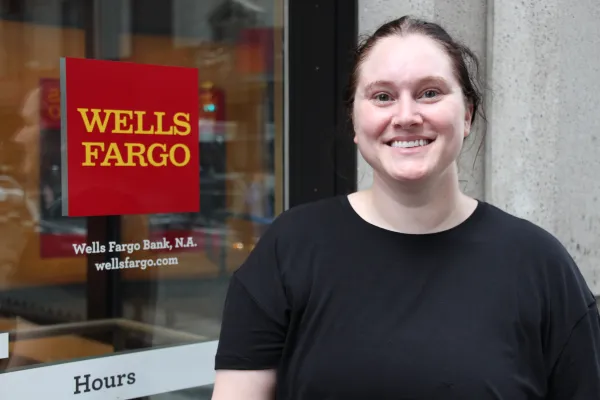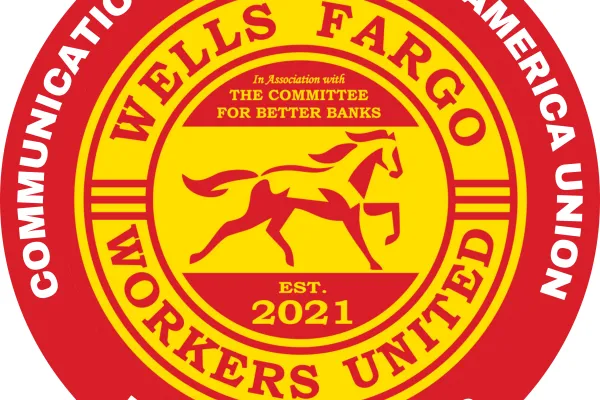Forming a Union: FAQ

Q. Can bank workers belong to unions?
A. Yes! All bank, credit union, and other financial service workers have the right to form unions. While there are few bank workers who currently belong to unions in the United States, there have been some recent victories at Beneficial State Bank and Genesee Co-Op Federal Credit Union. Further, most workers at big banks around the world belong to unions.
Q. What can we get from forming a union?
A. To take care of others, we need to take care of ourselves. Together, as a union we can negotiate for improved wages, benefits and working conditions.
Q. Can’t we get more by just sitting down and talking individually with the boss?
A. Bargaining collectively is the only way to effectively negotiate “big issues” such as health insurance, living wage for all, and fair working conditions. Our managers have very little influence over our raises or working conditions. Higher level executives like our district managers or higher up are the real decision makers. If we want to improve staffing and working conditions at our locations, we need to come together so we can bargain collectively.
Q. How does a union work, anyway?
A. We are joining a democratic union. Once we unionize, a committee of workers, along with a union rep, sits down with management to bargain a contract on such issues as salary, benefits, and working conditions. Once a deal is reached, members of our union vote it up or down. Members in each job title or worksite elect shop stewards to represent their interests in an ongoing way around workplace safety, compensation, benefits, discipline, and so on. Union members also participate in the broader labor movement through demonstrations, voter drives, and lobbying. A union provides us a vehicle for making change in our workplace and in society.
Q. What is the union we would join? Who is CWA?
A. Since 2014, the Communications Workers of America (CWA) is the union backing the Committee for Better Banks and has led the way to bringing dignity and justice to bank workers. The Communications Workers of America represents approximately 700,000 working people in telecommunications, customer service, media, airlines, health care, public service and education, manufacturing, tech as well as finance, including at the City of Boston Credit Union. Recently, workers at Beneficial State Bank (based in Oakland, CA) and Genesee Co-Op Federal Credit Union (Rochester, NY) successfully organized their union and joined CWA.
Q. Is the union an outside, third party?
A. No, the union is us! Once we vote for a union, all of us at will be our own “shop.” We will be a part of a larger union of workers, but we will figure out what we want in our union contract. We will sit at the bargaining table and negotiate with management. We will elect our coworkers to represent us and help us. We are the union!
Q. When do we start paying dues, and how much are they?
A. No one pays a penny in dues until we all bargain a union contract, and until that contract is voted on by everyone.
When we have a union contract we are satisfied with, and only after we vote “yes” for that contract, then dues kick in.
Dues are only $1.30 per hundred dollars you earn. That is the total cost. Dues are a way to keep the union running so we have our own independent infrastructure to fight for better working conditions. The union is a non-profit; all the money goes back into the membership. And union members have a vote in how your dues are spent to keep our union strong.
Q. Can I get fired for organizing a union?
A. It is illegal for your employer to fire, retaliate or harass employees for organizing a union. Your right to organize is protected under the National Labor Relations Act. Our employer may try to get away with violating your rights and breaking the law, but if we stick together we can push back and overcome any attempts by executives to engage in antiunion actions intended to intimidate and silence us, including filing unfair labor practice charges against the bank.
Q. Will forming a union hurt our employer?
A. We are forming a union to make it better for all of us. With a union, we will be able to have a real say in our working conditions which will reduce turnover and increase our productivity.
Q. Will forming a union create tensions at work between staff and supervisors?
A. Most union members find that once a union is established, it is less tense— and less personal—to approach a supervisor as a representative of the union than it was to raise issues as a lone individual.
Q. Will we be forced to strike?
A. No. The only way we can strike is if we VOTE to strike! Over 99% of CWA contracts are bargained successfully without even the THREAT of a strike.
Q. Who is the Committee for Better Banks?
A. The Committee for Better Banks (CBB) is the only independent voice for bank workers. We bring together bank, credit union and other financial services workers to win a voice at work, improve conditions, and form unions in order to build a more equitable and community-focused banking system.
Our members include current and former workers from financial services large and small, including Wells Fargo, Beneficial State Bank, Citibank, Bank of America, Santander, PenFed, Lake Michigan Credit Union, and Verity Credit Union. CBB was founded by the Communications Workers of America with the support of community and consumer advocacy groups, and labor organizations from around the world.
We are active in California, Oregon, Washington, Texas, Minnesota, New York and other states. If you want to get active where you live just let us know and we'll connect you with an organizer.
Supporting organizations include: Alliance of Californians for Community Empowerment, Los Angeles Alliance for a New Economy, New York Communities for Change (NYCC), Minnesotans for Fair Economy, Jobs with Justice and local affiliates, and UNI Global Union.
Q. Is the Committee for Better Banks against banks?
A. We aren’t against banks– we are working to make them better.
Banks hold our pensions and we trust our savings to them. They play an important role in our economy. But right now banks are promoting a business model that is bad for workers and bad for customers. It doesn’t need to be that way. We know the industry can change for the better if we push it in the right direction.
Q. What do members of the Committee for Better Banks do?
A. Members organize together to make change in their workplaces. We have conference calls where bank employees from around the country discuss the challenges we face on the job and support each other. We meet with our coworkers, create petitions and join in days of action.
Q. How can I get involved?
A. Email one of our organizers, [email protected]
Q. Who can get involved in the Committee for Better Banks?
A. Any current or former bank worker at any bank, large or small can become a member. Any concerned community member can become a supporter.

